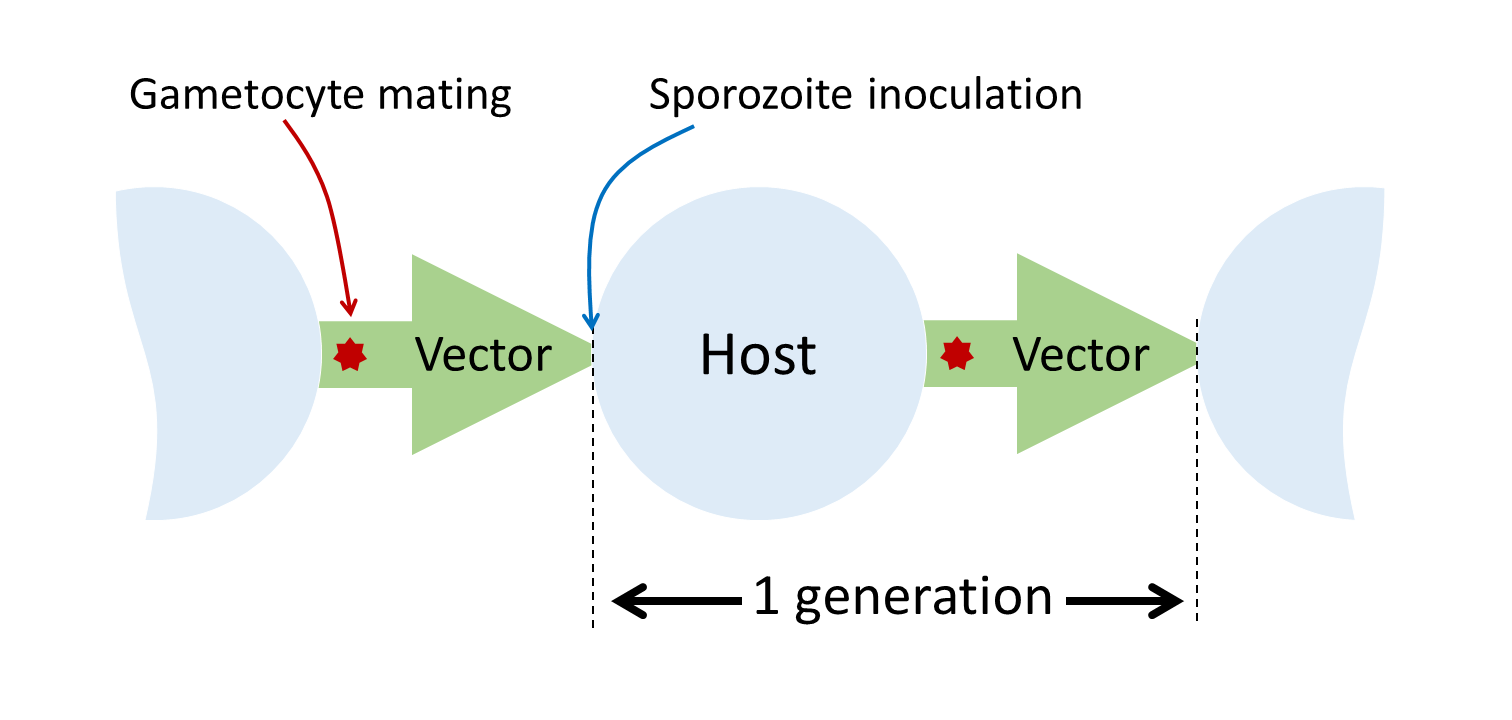One cycle of host-to-host transmission corresponds to one generation of sexual reproduction by the parasite

Plasmodium falciparum parasites reproduce asexually and prolifically within the red blood cells of their human host. Gametocytes (sexual forms of the parasite) mate after being taken up by a blood-sucking Anopheles mosquito. Their progeny then go through a series of developmental stages to produce sporozoites (asexual forms of the parasite that are inoculated by the mosquito into a new host). In our model, we define the start of a new generation of transmission as the inoculation of sporozoites into a new host, noting that this occurs shortly after sexual reproduction within the vector.
